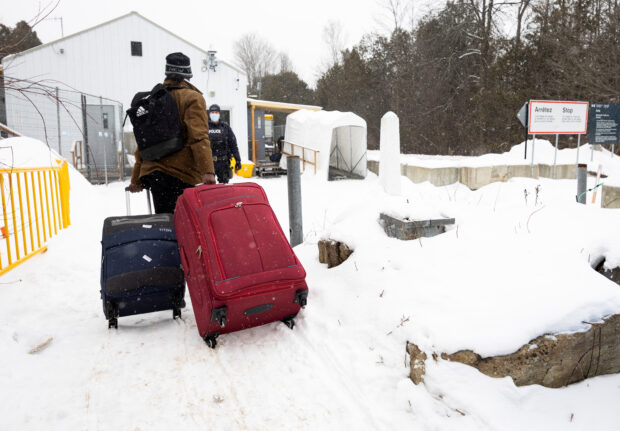
An asylum seeker arrives by taxi to Canada from the U.S. border on Roxham Road in Champlain, New York, U.S., February 25, 2023. REUTERS/Christinne Muschi
TORONTO — Canada’s liberal government kept immigration targets unchanged for the next two years and said it would stop ramping up immigration from 2026 onwards as the country grapples with high inflation and a housing crisis.
Canada is targeting 465,000 new residents this year, 485,000 in 2024 before hitting 500,000 in 2025 – a level it aims to maintain in 2026, Immigration Minister Marc Miller told reporters in Ottawa.
“These immigration levels will help set the pace of Canada’s economic and population growth while moderating its impact on critical systems such as infrastructure and housing,” Miller said.
READ: Eligible Filipinos may now travel to Canada visa-free
Canada’s population has grown mainly through immigration, and population growth has helped fuel economic growth in recent years. But some economists have blamed immigration for worsening the country’s housing shortage, though immigrants also work in industries like construction that face a labor shortage.
For this reason, the Bank of Canada has said immigration has been both a driver and a brake for inflation, which stood at 3.8% in September.
More consumers mean more demand, which pushes up prices, but immigrants entering the workforce also help keep down labor costs.
READ: Canada concerned about ‘integrity’ of student immigration system — minister
A strong inflow of immigrants has helped Canada’s population to grow last year at its fastest pace since 1957, placing it among the top 20 fastest-growing countries in the world, Statistics Canada said, in part offsetting the effects of aging residents who are retiring and adding to healthcare costs.
An increasing number of newcomers to Canada have in recent years opted to leave, posing a challenge to a country heavily dependent on immigration for population and economic expansion, the Institute for Canadian Citizenship said earlier this week.